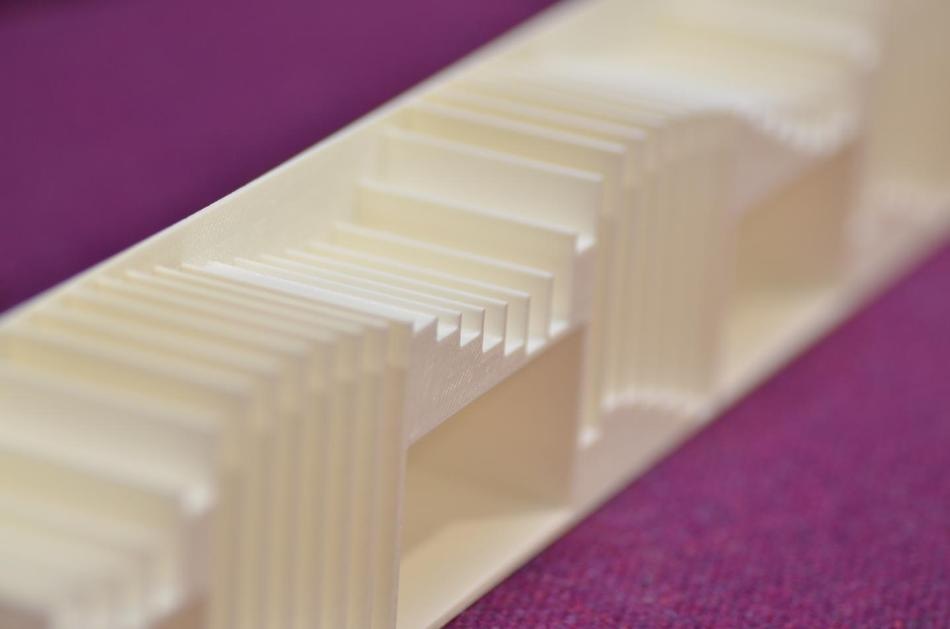Feb 18 2019
In people’s day-to-day lives, several examples of manipulation of reflected waves can be found, such as reflective surfaces for sound that enhance auditorium acoustics or mirrors for viewing individuals’ reflections.
 Photo of the actual metasurface. (Image credit: Aalto University)
Photo of the actual metasurface. (Image credit: Aalto University)
The angle of reflection corresponds to the angle of incidence when a wave falls on a reflective surface that has a specific angle of incidence and the energy is subsequently sent back. This standard law of reflection is valid for any kind of homogenous surface. At Aalto University, researchers have created novel metasurfaces for the random manipulation of reflected waves, fundamentally breaking the law to engineer a surface’s reflection on demand.
Metasurfaces are considered as synthetics structures in which meta-atoms are periodically arranged at subwavelength scale. Although meta-atoms are made of conventional materials, placing them in a periodic manner causes the surface to exhibit many extraordinary effects that otherwise cannot be achieved by natural materials. The researchers utilized power-flow conformal metasurfaces in order to engineer the reflected wave’s direction. The results of the study have been reported in Science Advances, February 15th, 2019.
Existing solutions for controlling reflection of waves have low efficiency or difficult implementation. We solved both of those problems. Not only did we figure out a way to design high efficient metasurfaces, we can also adapt the design for different functionalities. These metasurfaces are a versatile platform for arbitrary control of reflection. This is really an exciting result. We have figured out a way to design such a device and we test it for controlling sound waves. Moreover, this idea can be applied to electromagnetic fields.
Ana Díaz-Rubio, Postdoctoral Researcher, Aalto University
The study was funded by the Academy of Finland. The article was published in the online version of the journal on February 15th, 2019.